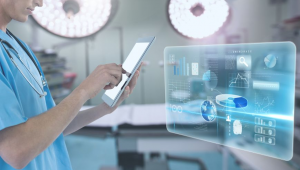A recent boom in telehealth and connected medical devices for health monitoring and management has led medical professionals to further consider what is necessary for the creation of ethical, accessible, and easy-to-use medical device software that is both seamlessly integrated into a hospital environment and easy for the patient to operate.
Industry experts came together for a MD&M BIOMEDigital panel discussion entitled “Design and Product Development Principles for Connected Devices.” In this discussion, they analyzed the different measures that software developers should take in tech production, as well as precautionary measures that should be taken on behalf of medical professionals to ensure the ethical utilization of different platforms.
The first step in proper software development, according to them, is to identify the user and frame the problem being addressed. This means understanding who will be utilizing said product, what their day-to-day activities may entail, and how to ensure that the proposed technology is practical.
Then comes assembling a team that is well versed in the field that the software covers and that can afford the utmost priority in testing and resetting the software to ensure its efficacy. Since defects in medical devices can sometimes lead to death if they malfunction, it is crucial to have many, thorough testing procedures on any technology that will directly impact health outcomes.
Design goals should include versatility in medical establishments and should ensure that the technology is something physicians feel comfortable administering and educating patients about. Disability access and ease of comfort should also be fundamental to device development.
The panel of experts also suggested that developers should immerse themselves into the process of getting to know the kinds of patients that will be utilizing their technology and how those patients are likely to manage products in a home environment.
Members of the panel also saw it important that FDA regulation catches up to the speed of product and software development, as many startups and companies are intimidated and apprehensive about developing software tools that fall under any kind of FDA guidelines.
Collectively, a combined effort from medical technology developers, hospital staff, and government assistance and oversight are needed to ensure that patients get access to ethically responsible and efficient ways to manage treatments and healthcare solutions.























